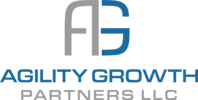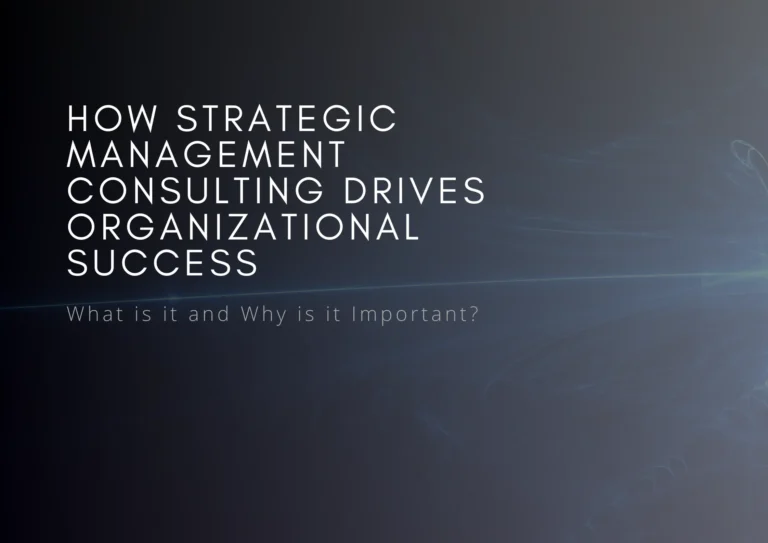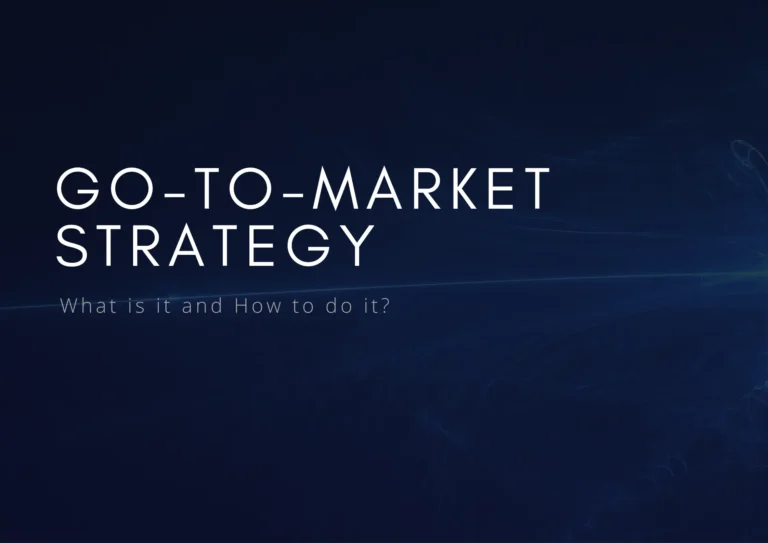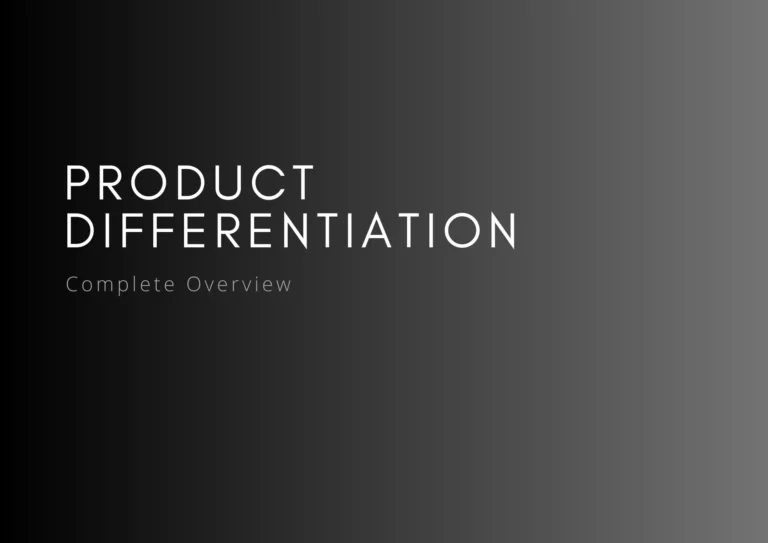In the fast-paced world of durable goods, businesses face the challenge of balancing operational efficiency with the need for constant innovation. As competition intensifies and consumer demands evolve, staying ahead requires not just smart strategies but agile execution.
In this article, we explore how optimizing operational processes while fostering innovation can unlock new growth opportunities, helping companies remain competitive, boost profitability, and meet the ever-changing expectations of today’s consumers. Whether you’re looking to streamline production or revolutionize your product line, mastering this balance is the key to long-term success.
Consumer goods are broadly classified into two categories based on their longevity and usage.:
- Durable goods
- Non-durable goods
Consumer Durable Goods
These are items that typically provide long-term use and are not consumed immediately. They are designed to last for several years and can endure extended usage without being quickly worn out or replaced. Examples include:
- Automobiles: Cars, motorcycles, and trucks
- Appliances: Refrigerators, washing machines, and ovens
- Furniture: Sofas, beds, and tables
- Electronics: Televisions, computers, and smartphones
Durable goods are often considered investments, as they are purchased less frequently due to their long lifespan.
Consumer Non-Durable Goods
In contrast, non-durable goods are products that are consumed quickly or have a short lifespan, usually lasting less than three years. These items are used up or exhausted after a single or limited use, and they need to be purchased regularly. Examples include:
- Food and Beverages: Packaged snacks, drinks, and perishable goods
- Personal Care Items: Soap, shampoo, and toothpaste
- Clothing: Everyday wear items, though not all clothing falls under non-durable goods
- Paper Products: Napkins, tissues, and notebooks
Non-durable goods are essential for daily consumption and are bought frequently due to their transient nature.
At Agility Growth Partners, we specialize in supporting companies in the consumer goods and durable goods sectors to optimize their operations, streamline supply chains, and drive innovation. Our goal is to help businesses enhance their efficiency, adapt to evolving consumer preferences, and secure a competitive edge in a dynamic market.
Optimizing Operations for Enhanced Efficiency
Efficiency is paramount in the consumer goods and durable goods sectors, where companies face intense competition and narrow profit margins. At Agility Growth Partners, we collaborate closely with our clients to identify and implement operational improvements across their manufacturing processes and distribution networks. Our approach is designed to enhance productivity, reduce costs, and increase overall operational performance.
Leveraging Advanced Technologies
Advanced technologies are instrumental in driving operational efficiency. We help businesses integrate the latest innovations to streamline their operations and achieve substantial gains:
- Automation: Implementing automated systems for repetitive tasks and complex processes, including robotics in manufacturing lines and automated warehousing solutions. This reduces manual errors, speeds up production, and lowers labor costs.
- Predictive Analytics: Utilizing predictive analytics to forecast demand, optimize inventory levels, and prevent supply chain disruptions. By analyzing historical data and trends, we help businesses anticipate market changes and make informed decisions.
- Artificial Intelligence (AI): Employing AI for advanced data analysis, process optimization, and real-time decision-making. AI-driven insights can enhance quality control, streamline operations, and improve customer service.

Adopting Lean Operations
Lean principles focus on maximizing value while minimizing waste. We assist companies in adopting lean methodologies to improve efficiency and operational agility:
- Value Stream Mapping: Analyzing and optimizing the value stream to identify bottlenecks, reduce waste, and improve flow. This involves streamlining production steps and enhancing process efficiency.
- Continuous Improvement (Kaizen): Implementing continuous improvement practices to foster a culture of incremental enhancements. Regularly reviewing processes and performance metrics to drive ongoing operational excellence.
- Just-In-Time (JIT) Manufacturing: Implementing JIT principles to reduce inventory levels, lower storage costs, and improve cash flow. This approach ensures that materials and products are delivered precisely when needed, reducing waste and enhancing responsiveness.
Establishing Performance Metrics
Effective performance measurement is crucial for managing and improving operational efficiency. We help clients establish and monitor key performance indicators (KPIs) to drive continuous improvement:
- Operational KPIs: Defining and tracking KPIs related to production efficiency, such as cycle time, throughput, and defect rates. This allows businesses to measure performance against benchmarks and identify areas for improvement.
- Financial KPIs: Monitoring financial metrics such as cost per unit, return on assets, and profit margins. This provides insights into cost control and overall financial health.
- Customer KPIs: Assessing customer-related metrics, including on-time delivery rates, order accuracy, and customer satisfaction scores. Ensuring that operational improvements align with customer expectations and enhance service quality.
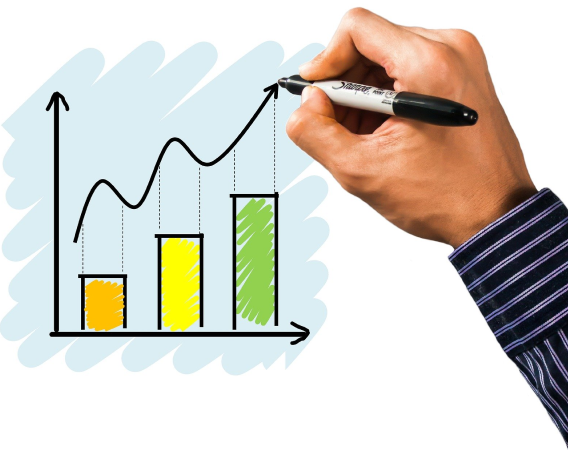
By integrating advanced technologies, adopting lean operations, and establishing robust performance metrics, Agility Growth Partners helps companies in the consumer goods and durable goods sectors achieve greater operational efficiency. Our solutions are designed to address the unique challenges of these industries, drive productivity, and position businesses for long-term success in a competitive market.
Streamlining Supply Chains for Greater Agility
Effective supply chain management is crucial for maintaining agility and responsiveness in today’s dynamic market environment. At Agility Growth Partners, we assist our clients in optimizing their supply chains to enhance speed, reliability, and cost-efficiency. Our comprehensive approach ensures that businesses can navigate market fluctuations, minimize disruptions, and deliver products efficiently.
Logistics Optimization
Logistics is a key component in achieving supply chain agility. We focus on refining logistics operations to improve overall performance and reduce costs:
- Routing and Scheduling: Implementing advanced algorithms and optimization tools to enhance transportation routes and schedules. This minimizes travel time, reduces fuel consumption, and lowers transportation expenses.
- Warehousing Solutions: Enhancing warehousing operations through better layout design, automation, and inventory management. Efficient warehousing practices help reduce storage costs and improve order fulfillment speed.
- Distribution Networks: Analyzing and optimizing distribution networks to ensure that products are delivered efficiently and cost-effectively. This includes evaluating distribution center locations and transportation modes to enhance coverage and service levels.
Supplier Integration
Strong supplier relationships and effective integration are essential for a responsive supply chain. We help clients strengthen supplier collaboration and streamline processes:
- Supplier Relationship Management: Building and maintaining strong relationships with key suppliers to ensure reliable performance and timely delivery. This involves regular communication, performance reviews, and collaborative planning.
- Process Integration: Integrating supplier processes with client operations through shared systems and data exchange. This enables real-time visibility into inventory levels, production schedules, and order status, reducing lead times and mitigating risks.
- Risk Management: Identifying and addressing potential risks in the supply chain, such as supply disruptions or quality issues. Developing contingency plans and diversifying suppliers to enhance resilience and minimize impact.
Digital Tools for Enhanced Visibility
Digital solutions play a crucial role in improving supply chain management. We assist clients in leveraging digital tools to gain better insights and control:
- Demand Forecasting: Utilizing advanced forecasting tools and analytics to predict demand more accurately. Improved demand forecasting helps optimize inventory levels, reduce stockouts, and minimize excess inventory.
- Inventory Management: Implementing digital inventory management systems that provide real-time visibility into stock levels, movements, and trends. This enhances inventory accuracy, reduces carrying costs, and improves order fulfillment.
- Supply Chain Visibility: Adopting end-to-end visibility solutions to track shipments, monitor performance, and identify potential issues. Real-time tracking and data integration enable proactive decision-making and rapid response to supply chain disruptions.
Data-Driven Decision Making
Harnessing data to drive decisions is key to achieving supply chain agility. We support clients in leveraging data analytics to enhance their supply chain operations:
- Advanced Analytics: Applying data analytics to identify trends, optimize processes, and make informed decisions. This includes analyzing historical data, performance metrics, and market trends to improve supply chain efficiency.
- Predictive Insights: Utilizing predictive analytics to anticipate future demand, potential disruptions, and supply chain bottlenecks. Predictive insights enable proactive measures and strategic planning.
- Performance Monitoring: Establishing data-driven KPIs and dashboards to continuously monitor supply chain performance. This allows businesses to track progress, identify areas for improvement, and drive operational excellence.
By focusing on logistics optimization, supplier integration, and the use of digital tools, Agility Growth Partners helps companies streamline their supply chains to achieve greater agility and responsiveness. Our solutions are designed to enhance speed, reliability, and cost-efficiency, ensuring that businesses can effectively meet market demands and maintain a competitive edge.
Driving Innovation to Meet Changing Consumer Demands
Innovation is essential for maintaining a competitive edge in the rapidly evolving consumer goods and durable goods markets. At Agility Growth Partners, we assist clients in developing cutting-edge products, refining existing offerings, and implementing innovative business models that resonate with modern consumers. Our comprehensive support encompasses various aspects of innovation to ensure that companies stay ahead of market trends and deliver compelling value to their customers.
Product Development
Effective product development is key to meeting changing consumer demands and staying competitive. We guide clients through every stage of the product development process:
- Market Research: Conducting in-depth market analysis to identify emerging trends, consumer needs, and potential opportunities. We help businesses understand market dynamics and consumer preferences to inform product development strategies.
- Ideation and Concept Development: Facilitating brainstorming sessions and workshops to generate innovative product ideas. We assist in refining concepts and developing detailed product specifications that align with market demands.
- Rapid Prototyping: Employing rapid prototyping techniques to quickly develop and test product prototypes. This iterative approach allows for early feedback, faster adjustments, and a more efficient path to market readiness.
Business Model Innovation
Adapting business models is crucial for addressing evolving consumer preferences and market conditions. We support clients in exploring and implementing innovative business models:
- Subscription Services: Developing subscription-based models that offer convenience, recurring revenue, and enhanced customer loyalty. We help businesses design and launch subscription services that meet consumer expectations and drive sustained engagement.
- Direct-to-Consumer (DTC) Strategies: Implementing DTC strategies to bypass intermediaries and engage directly with customers. We assist in building and optimizing online sales channels, enhancing customer experiences, and gaining valuable insights into consumer behavior.
- Omnichannel Approaches: Integrating various sales and distribution channels to create a seamless customer experience. We support clients in developing omnichannel strategies that blend online and offline touchpoints for greater reach and customer satisfaction.
Technology Integration
Leveraging advanced technologies is critical for driving innovation and improving product and process efficiency. We help clients integrate cutting-edge technologies to enhance their offerings:
- Artificial Intelligence (AI): Utilizing AI to develop intelligent products and optimize business processes. AI applications include predictive analytics, personalized recommendations, and automated customer interactions, all of which enhance product value and operational efficiency.
- Internet of Things (IoT): Incorporating IoT technologies to create connected products and systems. IoT enables real-time data collection, remote monitoring, and enhanced product functionalities, providing valuable insights and improving user experiences.
- Advanced Manufacturing Techniques: Adopting technologies such as 3D printing and smart manufacturing to innovate product designs and streamline production processes. These techniques allow for greater customization, faster production cycles, and reduced manufacturing costs.
Consumer Insights and Feedback
Understanding consumer needs and preferences is fundamental to successful innovation. We assist clients in leveraging consumer insights to drive product development and business strategy:
- Consumer Feedback: Collecting and analyzing customer feedback through surveys, focus groups, and online reviews. This feedback informs product improvements, identifies new opportunities, and enhances customer satisfaction.
- Trend Analysis: Monitoring and analyzing market trends and consumer behavior to identify emerging opportunities and potential disruptions. We help clients stay ahead of industry shifts and adapt their strategies accordingly.
- Innovation Workshops: Conducting workshops and ideation sessions to engage stakeholders and generate new ideas. These collaborative efforts foster creativity and align innovation efforts with consumer expectations.
By focusing on product development, business model innovation, and technology integration, Agility Growth Partners helps companies in the consumer goods and durable goods sectors drive meaningful innovation. Our approach ensures that businesses can effectively address changing consumer demands, create compelling products, and establish a strong competitive position in the market.
Achieving Long-Term Growth and Competitive Advantage
At Agility Growth Partners, we specialize in helping companies in the consumer goods and durable goods sectors achieve sustainable, long-term growth by strategically capitalizing on opportunities and effectively managing risks. Our expertise is designed to guide businesses through complex market dynamics and build a foundation for enduring success.
Market Expansion
Expanding into new markets and growing market share are critical for long-term success. We support clients in developing and executing strategies that drive revenue growth and increase their competitive footprint:
- Market Entry Strategies: Crafting comprehensive strategies for entering new markets, including market research, feasibility studies, and localization. We assist in identifying the right market opportunities and navigating regulatory and cultural considerations.
- Mergers and Acquisitions (M&A): Guiding clients through the M&A process to acquire complementary businesses or enter new markets. We conduct thorough due diligence, evaluate potential targets, and facilitate successful integrations to maximize value.
- Strategic Partnerships: Identifying and forming strategic partnerships that enhance market presence and access new customer segments. We help businesses build alliances that leverage complementary strengths and expand their reach.
Revenue Optimization
Maximizing revenue and profitability requires a well-rounded approach to pricing, segmentation, and customer management. Our strategies are designed to enhance financial performance and drive growth:
- Pricing Strategies: Developing and implementing pricing strategies that reflect market conditions, consumer behavior, and competitive pressures. We assist in setting optimal pricing models, conducting price sensitivity analysis, and adjusting pricing strategies to maximize revenue.
- Market Segmentation: Analyzing and segmenting markets to target specific customer groups effectively. We help businesses tailor their products, services, and marketing efforts to meet the unique needs of different segments and capture additional market share.
- Customer Retention: Implementing initiatives to improve customer loyalty and retention, such as loyalty programs, personalized experiences, and targeted communications. Our focus is on creating long-term relationships with customers to drive repeat business and sustained revenue.
Brand Building
Building a strong, recognizable brand is essential for fostering loyalty and differentiating from competitors. We help clients enhance their brand presence and reputation through:
- Customer Experience: Designing and implementing strategies to improve customer interactions and satisfaction. We focus on creating positive experiences at every touchpoint to strengthen brand loyalty and encourage word-of-mouth referrals.
- Reputation Management: Managing and enhancing brand reputation through proactive communication, crisis management, and public relations efforts. We help businesses maintain a positive image and address any issues that may impact their reputation.
- Sustainability Initiatives: Incorporating sustainability into brand strategy to appeal to environmentally conscious consumers. We assist in developing and communicating sustainability efforts, such as eco-friendly practices and social responsibility programs, to build brand trust and loyalty.
Tailored Solutions for Long-Term Success
Our approach ensures that companies are well-positioned to thrive in a competitive global marketplace. By partnering with Agility Growth Partners, businesses benefit from:
- Customized Strategies: Tailoring solutions to each client’s unique needs and market conditions. We develop strategies that align with specific business goals and industry trends to achieve optimal results.
- Continuous Improvement: Focusing on continuous improvement and adaptation to changing market conditions. Our solutions are designed to evolve with the industry and address emerging challenges and opportunities.
- Strategic Insights: Providing deep industry insights and expert guidance to help businesses navigate complexities and make informed decisions. We leverage our extensive experience to support long-term strategic planning and execution.
By leveraging our expertise in market expansion, revenue optimization, and brand building, Agility Growth Partners empowers companies in the consumer goods and durable goods sectors to achieve sustainable growth and maintain a competitive advantage. Our tailored solutions ensure that businesses are equipped to meet evolving consumer demands and excel in a dynamic global marketplace.
What are consumer durable and non-durable goods?

Consumer goods are divided into two main categories: durable and non-durable goods. Consumer durable goods are items that provide long-term utility and are not purchased frequently, such as cars, furniture, and appliances. Non-durable goods, on the other hand, are items that are consumed quickly and require frequent repurchase, like food, beverages, and toiletries.
Do durable goods include both consumer goods and capital goods?

Yes, durable goods encompass both consumer goods and capital goods. Consumer durable goods are intended for personal use and have a long lifespan, while capital goods (or industrial goods) are used in the production of other goods or services and have a long-term economic life.
What are examples of consumer durables and non-durables?
Consumer durables include products like refrigerators, washing machines, and televisions. Non-durables include products such as shampoo, packaged foods, and paper towels.
How do marketing strategies differ for consumer durables and non-durables?
Marketing for consumer durables often focuses on long-term benefits, durability, and after-sales service, using strategies like detailed product information and customer testimonials. For non-durables, marketing usually emphasizes convenience, price, and immediate satisfaction, often employing high-frequency promotions and packaging to attract impulse buys.
What is the difference between consumer durables and capital goods?
Consumer durables are goods purchased by individuals for personal use, like cars and home appliances. Capital goods are purchased by businesses for production purposes, such as machinery, tools, and industrial equipment. While both types of goods are durable, capital goods are used in the creation of other products, whereas consumer durables are for end-user consumption.
How do consumer expenditures on durable goods compare to non-durable goods?
Consumer expenditures on durable goods (such as cars and furniture) are generally higher per item but less frequent compared to non-durable goods (like groceries and cleaning supplies), which are purchased more frequently but at a lower cost per item. Durable goods represent a significant investment, while non-durables are part of everyday spending.
What is the significance of consumer durables in economic research?
In economic research, consumer durables are important indicators of economic health and consumer confidence. High sales of durable goods often signal strong economic conditions and consumer willingness to make long-term investments, while declining sales may indicate economic uncertainty.
How does marketing differ between consumer durables and non-durables?
Marketing strategies for consumer durables often focus on long-term value, product features, and durability, using detailed ads and customer reviews. For non-durables, the emphasis is on immediate need, convenience, and price, with frequent promotions and eye-catching packaging to drive quick purchases.
What is the difference between durable and non-durable consumer goods?
The key difference is in their lifespan and consumption patterns. Durable consumer goods are long-lasting items that do not need to be replaced often, such as electronics and appliances. Non-durable consumer goods are products that are consumed quickly and require regular repurchase, like food and personal care products.
How do consumer packaged goods relate to durable goods?
Consumer packaged goods (CPG) are typically non-durable items that are bought frequently and consumed quickly, such as snacks, beverages, and toiletries. They differ from durable goods, which are used over a longer period and require less frequent replacement.
